Search Definitions
Browse Content (p. 38)
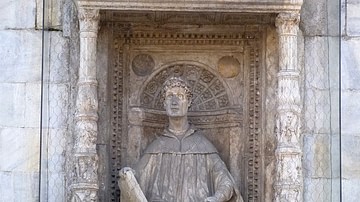
Definition
Pliny the Younger
Pliny the Younger (61-112 CE) was the nephew of Pliny the Elder (23-79 CE), the author of the 37-volume Natural History. He had a remarkable political career and gained a reputation as an excellent lawyer and orator, but he is most famous...
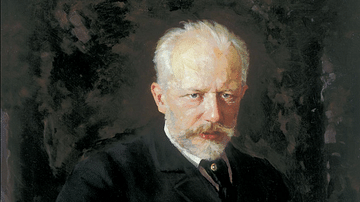
Definition
Pyotr Ilyich Tchaikovsky
Pyotr Ilyich Tchaikovsky (1840-1893) was a Russian composer most famous for his symphonies, the ballets Swan Lake, The Sleeping Beauty, and The Nutcracker, and the operas Eugene Onegin and The Queen of Spades. A composer of innovative and...
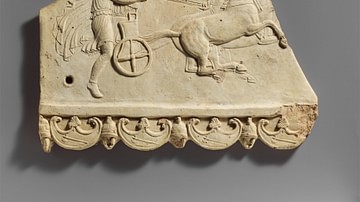
Definition
Pelops
Pelops was a Greek hero and king of Pisa in Greek mythology. As the son of Tantalus, he was a member of the cursed House of Atreus, and was cruelly sacrificed by his father in a twisted way to test the gods – an act that backfired and led...
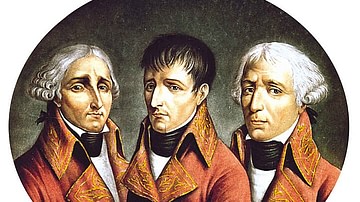
Definition
French Consulate
The French Consulate was the government of the First French Republic from 10 November 1799 to 18 May 1804, spanning the last four years of the Republic's existence. Headed by Napoleon Bonaparte (1769-1821) as First Consul, the Consulate served...
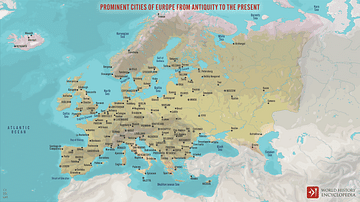
Definition
Europe
Europe is a continent forming the westernmost part of the land mass of Eurasia and comprised of 49 sovereign states. Its name may come from the Greek myth of Europa, but human habitation of the region predates that tale, going back over 150,000...
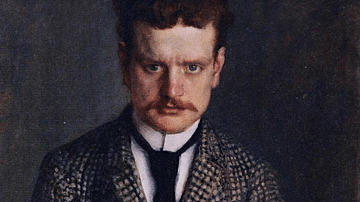
Definition
Jean Sibelius
Jean Sibelius (1865-1957) was a Finnish composer famous for his symphonies, the symphonic poem Finlandia, and the Karelia Suite. Although Sibelius inspired a music revival in his native country, became a figurehead for the Finnish nationalist...
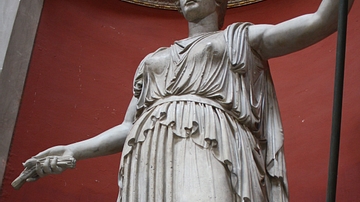
Definition
Ceres
Ceres is the goddess of agriculture and the harvest in Roman mythology. Her favor would bring humankind plentiful harvests and fruitful crops, but her wrath brought blight, drought, and famine. Usually depicted as a matron, her symbols included...
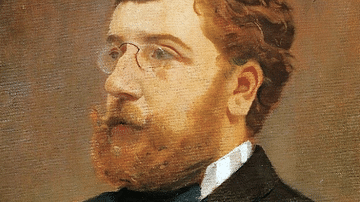
Definition
Georges Bizet
Georges Bizet (1838-1875) was a French Romantic composer best known for his opera Carmen and the instrumental music for the play L'Arlésienne. None of his earlier operas had enjoyed any great success, and even Carmen took several months to...
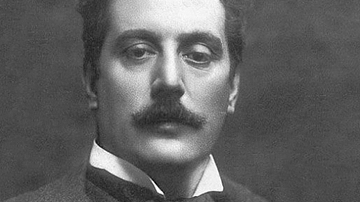
Definition
Giacomo Puccini
Giacomo Puccini (1858-1924) was an Italian composer best known for his operas La Bohème, Tosca, Madama Butterfly, and Turandot. Puccini drew inspiration from a wide range of literary sources, and his late Romantic music with its immortal...
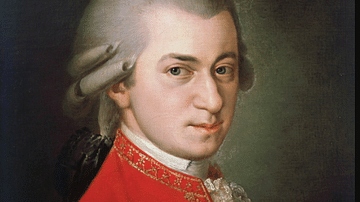
Definition
Wolfgang Amadeus Mozart
Wolfgang Amadeus Mozart (1756-1791) was an Austrian composer who wrote a wide range of works including piano concertos, string quartets, symphonies, operas, and sacred music. Regarded as one of or perhaps the greatest natural musical talent...